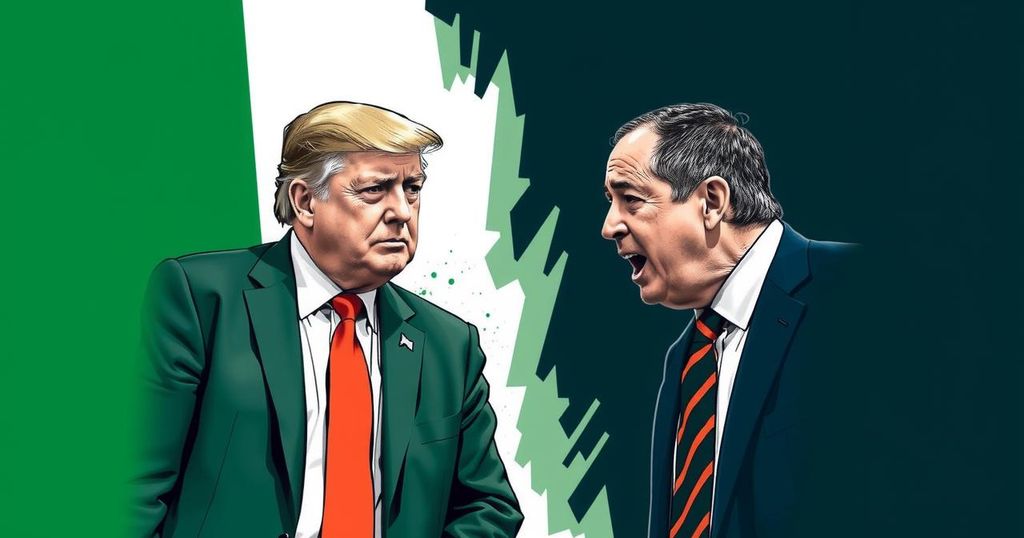Political Turbulence in Ireland: Simon Harris’s Leadership Tested Before Election

Ireland’s election dynamics have shifted as Prime Minister Simon Harris faces backlash from a recent voter confrontation, raising questions about his leadership. While Sinn Féin sees improved poll performance, a coalition government with Fine Gael and Fianna Fáil remains likely despite emerging challenges in public sentiment.
In recent weeks, the political landscape of the Republic of Ireland has shifted markedly as the general election approaches. Prime Minister Simon Harris of Fine Gael, who has long enjoyed favorable approval ratings, is facing unforeseen scrutiny following an incident during a public encounter. This confrontation, which was subsequently broadcast on social media, reveals potential vulnerabilities in Harris’s leadership and may impact his party’s coalition with Fianna Fáil as they seek to secure another term in government. Though poll numbers have reflected a slight resurgence for Sinn Féin, analysts predict that a coalition involving Fine Gael and Fianna Fáil remains the most likely scenario post-election.
The encounter that has sparked controversy occurred last Friday, as Simon Harris was approached by a voter identified as Charlotte Fallon in a supermarket. She expressed her dissatisfaction with the government’s support for individuals working with disabled persons, a sentiment that Harris responded to dismissively. His curt demeanor and rapid exit from the conversation have raised questions about his accessibility to constituents and may have consequences for his standing in the election. Despite these events, the two centrist parties govern together and are expected to continue their collaboration, possibly expanding to include the Greens or Labour Party in coalition efforts.
Historically, Ireland has demonstrated political continuity, especially in contrast to other Western democracies experiencing significant governmental shifts. Since Fine Gael and Fianna Fáil formed a coalition government in 2020, the expectation was that they would maintain a stronghold on parliamentary power. However, the recent tensions underscore the unpredictability inherent in democratic elections and voter sentiment.
Moreover, Simon Harris has been a prominent figure in Irish politics, serving not only as party leader but also as a representative of a newer generation of politicians. Nevertheless, the upcoming electoral outcome will test the resilience of established parties against rising opposition forces such as Sinn Féin. Should Sinn Féin successfully capture more seats, it would signify a substantial change in the nation’s political dynamics, despite the anticipated coalition scenario currently favored by analysts.
“Keep shaking hands and pretend you’re a good man, you’re not a good man.” – Charlotte Fallon.
The article discusses the recent developments surrounding the upcoming elections in the Republic of Ireland, focusing on Prime Minister Simon Harris’s handling of a public confrontation with a voter. The incident’s implications suggest a possible decline in Harris’s popularity, impacting the stability of the coalition government formed by Fine Gael and Fianna Fáil. With Sinn Féin’s recent surge in polling, the political climate has become more competitive, challenging the traditional dominance of the centrist parties in Irish politics.
In summary, the unexpected incident involving Prime Minister Simon Harris highlights potential vulnerabilities within his leadership as Ireland approaches its general election. Despite a strong historical precedent for the coalition government formed by Fine Gael and Fianna Fáil, the shifting political landscape and murmurs of dissatisfaction among constituents could signal an evolving dynamic in Irish politics. While a coalition may still be feasible, the rise of opposition parties like Sinn Féin suggests a landscape fraught with uncertainty and challenge for established political entities.
Original Source: www.nytimes.com







